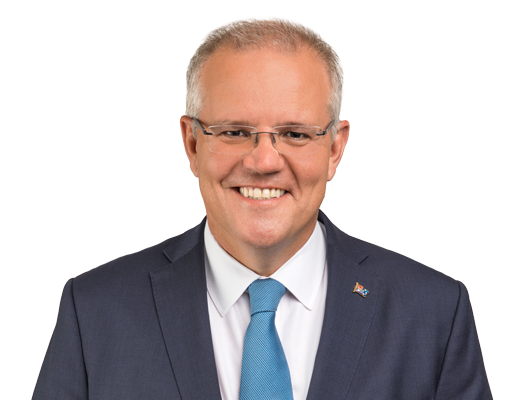Coal push from Nationals is a challenge for Scott Morrison
- Written by Michelle Grattan, Professorial Fellow, University of Canberra

Nationals who attend Thursday’s memorial service in Tweed Heads for Doug Anthony, who died last month aged 90, may muse on the contrast between the state of their party when he led it and now.
Anthony took over the then Country party from the legendary John McEwen in 1971; he served as deputy prime minister under John Gorton (briefly), William McMahon, and throughout the Fraser government.
He held the powerful trade portfolio, now out of the Nationals’ hands.
Most importantly, the junior Coalition partner in those days had not just a strong leader effective at juggling his party’s interests with those of the joint team, but an extremely forceful troika – including heavy hitters Ian Sinclair and Peter Nixon – in the upper reaches of government. The party was also united.
Today the Nationals have an embattled leader and a fractured party. They are tolerated rather than respected by the Liberals. For Scott Morrison they are more problem than asset.
As has been on show this week, which has seen sprays from former leader Barnaby Joyce and a renewed push for government support for new coal-fired power.
Joyce, who was forced to quit the leadership in early 2018 in a blaze of bad publicity over his personal life, wrote in The Australian[1] on Wednesday that “the Coalition has devolved into a marriage of convenience that diminishes the electoral prospects of the whole Coalition”.
Amomg his complaints is that the Liberals “allocate the substantial portfolios and [committee] chairs exclusively to themselves”.
“Would the Nationals’ doyen, John ‘Black Jack’ McEwen, have accepted this? This needs to be corrected prior to an election, which I presume will be at the end of this year.”
Joyce pointed to symbolism as well as substance. “In question time to the right of the dispatch box, where the Prime Minister sits, is no longer the Deputy Prime Minister, leader of the Nationals, but the Treasurer. He moved into the picture recently with the COVID pandemic and it does not look like he is for moving out of the frame.”
Joyce’s reference to McEwen is a less-than-subtle crack at Michael McCormack. Joyce and his supporters are deeply frustrated not just with McCormack’s leadership but also by the fact they haven’t been able to get rid of him, which is not for want of trying.
One of Morrison’s periodic challenges is to prop up the position of his deputy prime minister. For example, in considering a legal issue last year, Morrison overrode the preference of Attorney-General Christian Porter to side with strident Nationals, fearing to do otherwise could undermine McCormack.
Morrison has wanted to avoid the disruption in government ranks that would come with the overthrow of McCormack.
Also, what dissident Nationals see as a negative – McCormack’s pliancy – is for Morrison a positive. Basically, McCormack doesn’t kick up within the Coalition.
He does, however, stuff up from time to time. Like when he was recently acting PM and sparked controversy with his comments about the insurrection in Washington, comparing “the events at the Capitol Hill” “to those race riots that we saw around the country last year.”
Read more: Why is it so offensive to say 'all lives matter'?[2]
With the usual provisos about the uncertainties of politics, McCormack is expected to lead into the election. The heir is not Joyce, despite his aspirations, but the party’s deputy leader, Agriculture minister David Littleproud – and it’s in Littleproud’s interests to wait.
But it is telling that Nationals sources (not from the dissidents) say McCormack’s position would not be guaranteed post election even if the party held its seats.
At the start of a year when Morrison will be under international and domestic pressure over climate policy, the Nationals’ backbench manufacturing committee is hyping up the coal debate. The committee is chaired by former resources minister Matt Canavan, close ally of Joyce and an outspoken rebel.
The committee’s policy paper says: “Australia needs to build modern coal fired power stations to help manufacturing industries. That is why the Nationals Party backs the delivery of a coal fired power station at Collinsville in North Queensland.
"But more will need to be built. Given that the NSW Government has recently announced plans to shut 8520 megawatts of coal fired power (representing 70 per cent of the electricity of NSW), the Government should also support a new coal fired power station in the Hunter Valley.
"This would use the world’s best and cleanest thermal coal. It would be better for the environment for more Australian coal to be used to manufacture goods in Australia, instead of Australians importing manufactured goods from countries that use lower quality coals.”
While the federal government has a feasibility study underway for a possible coal-fired plant at Collinsville, it does not expect there will be a viable case made out for the project.
As for the Hunter region, Morrison’s energy pitch is all about gas, not coal.
The battle on the conservative side of politics over climate and energy issues is nothing like as feral as in Malcolm Turnbull’s time. But Morrison still has to watch potential dissenters – and at present the most unmanageable voices seem to be in the Nationals rather than in the Liberals.
References
- ^ wrote in The Australian (www.theaustralian.com.au)
- ^ Why is it so offensive to say 'all lives matter'? (theconversation.com)













